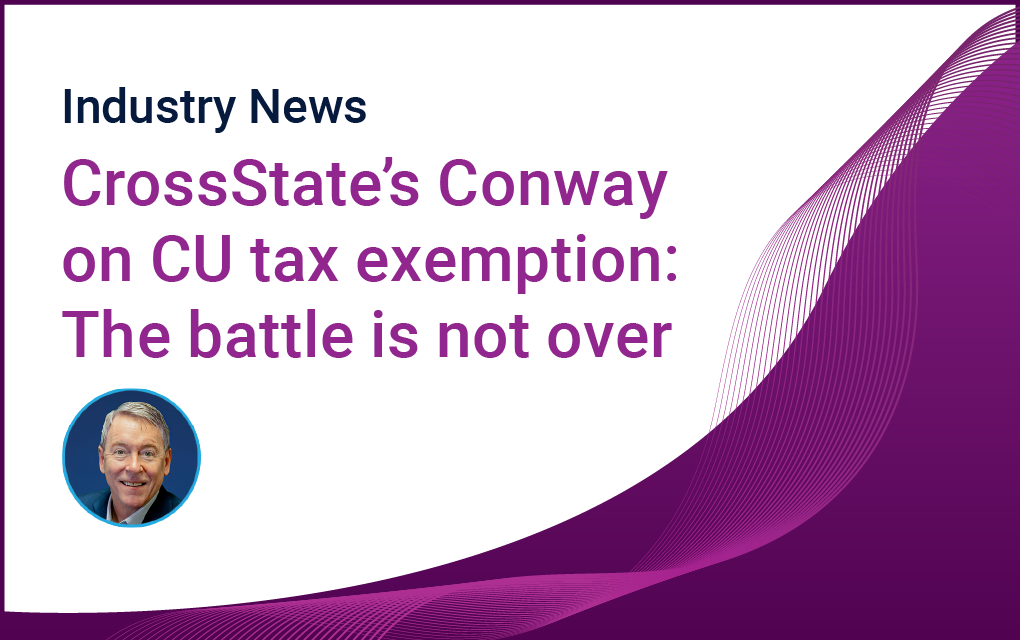INDUSTRY NEWS
Community bank CEOs: CFPB had it coming
Tyfone spoke with the CEOs of four community banks, who said that while the fate of the CFPB remains murky, the outcome is likely to be better than things were.
What is the future of the Consumer Financial Protection Bureau, and what impact will any changes at the agency have on community banks?
Answers may be few, but those two questions remain top of mind for most community bank CEOs today.
CFPB Director Rohit Chopra was dismissed by President Trump on Feb. 1, and since taking over, Acting Director Russell Vought has directed the bureau’s employees to stop working.
Trump nominated Jonathan McKernan to be the next director of the CFPB, but in the meantime Vought closed its Washington D.C. headquarters and requested that the agency’s funding be frozen.
The moves are supposed to be temporary – and community banks will continue to operate under the gaze of their primary regulators – but where it all ends remains unknown.
That doesn’t mean community bankers don’t have preferred outcomes in mind.
Jim Rieniets, president and CEO of $869 million-asset Insbank in Nashville, Tennessee, told Tyfone the CFPB was born out of a crisis, when elected officials were seeking answers and solutions hoping to convince voters they had a “never again” resolution.
Like so many things that take place when reacting to a crisis, there were many unintended consequences, he said. What started out as an effort to avoid a repeat of the “bogus-mortgage-driven housing crisis” was co-opted by consumer groups seeking to socialize the banking system.
“While there have been a handful of mistakes made by a few banks – Wells Fargo’s account creations, for one – an argument could be made that existing regulatory agencies already had the authority to supervise around the issues that the CFPB chose to pursue,” Rieniets said.
Brad Bolton, president and CEO of $208 million-asset Community Spirit Bank in Red Bay, Alabama, told Tyfone the Dodd Frank Act established the CFPB to reign in and monitor the transaction-focused, too-big-to-fail banks, and an entity to do just that is still needed.
“Unfortunately, the CFPB – especially during the last four years – painted the industry with a broad brush, with little if any tiered regulations,” Bolton said. “We need Congress to take this opportunity to revamp the CFPB, install a five-member board instead of a single director and to once and for all exempt community banks from their rules and regulations.”
Greg Dufour, who for 20 years was the president and CEO of the $5.7 billion-asset Camden National Bank in Camden, Maine, told Tyfone he has been surprised by the rapid changes taking place in the banking industry since he retired a year ago.
He said regardless of how things play out with the CFPB, the focus for most community banks will remain on their primary regulator.
“However, as we know, bank regulations trickle down, so there is potential for some compliance and policy burdens to be relieved,” he said.
Bolton said consumers that deal with community banks are already protected as those banks are subject to CRA, consumer compliance and fair lending laws and are examined for all via their primary regulators. So their customers will see no difference, regardless.
“But if we don’t rein in the CFPB from legislating with the pen and with rule-writing, consumers and small businesses will continue to suffer, putting a strain on the relationship-focused model of business that defines a community bank like mine,” he said.
Rieniets and other bankers feel that perhaps the most frustrating aspect of the CFPB is the unfortunate consequences of “unscrupulous actors” in the unregulated and less-regulated world of non-bank finance.
He said the CFPB has instead chosen to focus most of its resources on the banking industry.
“When pressed on this issue, the common response is that the banking industry is the only one for which data is readily available, and so it is the path of least resistance for CFPB management to pursue,” Rieniets said.
He is advocating for the CFPB to remain in place but to focus all of its resources on lesser-regulated financial services, as well as consumer financial literacy efforts.
The fact of the matter is a government agency can only protect so many consumers from abusive providers of financial services, Rieniets said. At the same time, a well-informed consumer can most often avoid being a victim of unscrupulous firms.
“I don’t think we wish to become a ‘nanny state’ where our government has to protect consumers from all private enterprise,” Rieniets said. “At what point is a consumer responsible for their own actions, decisions, and consequences?”
The Federal Reserve, OCC, FDIC, and prudential state agencies can provide appropriate oversight of the banking industry in the name of consumer protection, and compliance exams conducted by these same agencies cover all the requisite consumer regulations, the bankers believe.
As it pertains to the banking industry, the CFPB is redundant and simply not necessary, some bankers said.
Jim Tubbs, CEO of $3 billion-asset Lake Ridge Bank in Middleton, Wisconsin, told Tyfone it is too early to tell how changes at the agency – or its complete elimination – will impact Lake Ridge, its customers or the industry at large.
He said that with the magnitude of proposed changes that are on again and off again, it will be interesting to see how it all unfolds.
“If CFPB does survive, I believe it would be best to refocus their energy to what I believe was the original intent of the organization, which was the oversight and examination of non-regulated entities engaging in banking activities,” Tubbs said.
“I don’t think we wish to become a ‘nanny state’ where our government has to protect consumers from all private enterprise. At what point is a consumer responsible for their own actions, decisions, and consequences?”
– Jim Rieniets
President and CEO
Insbank








